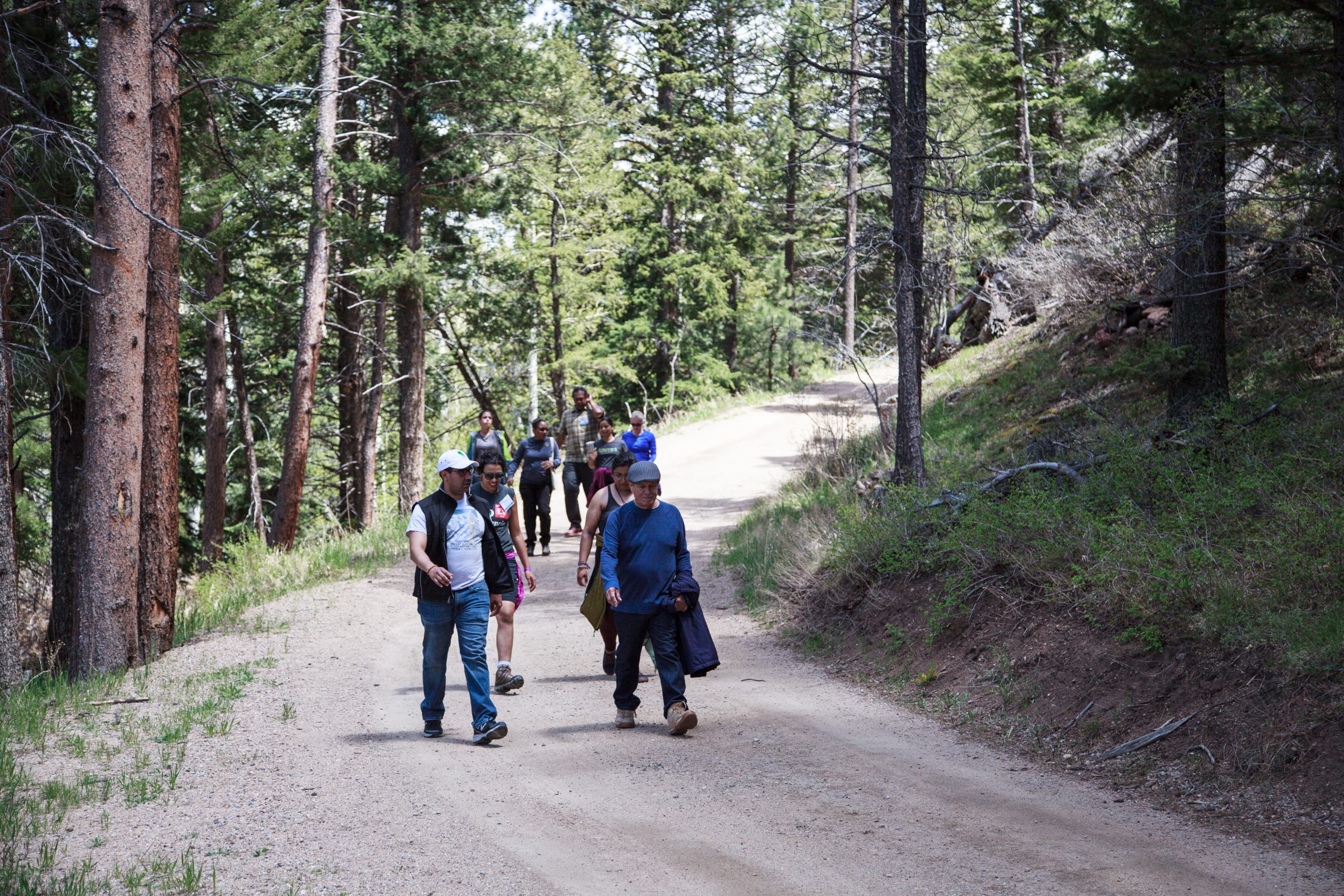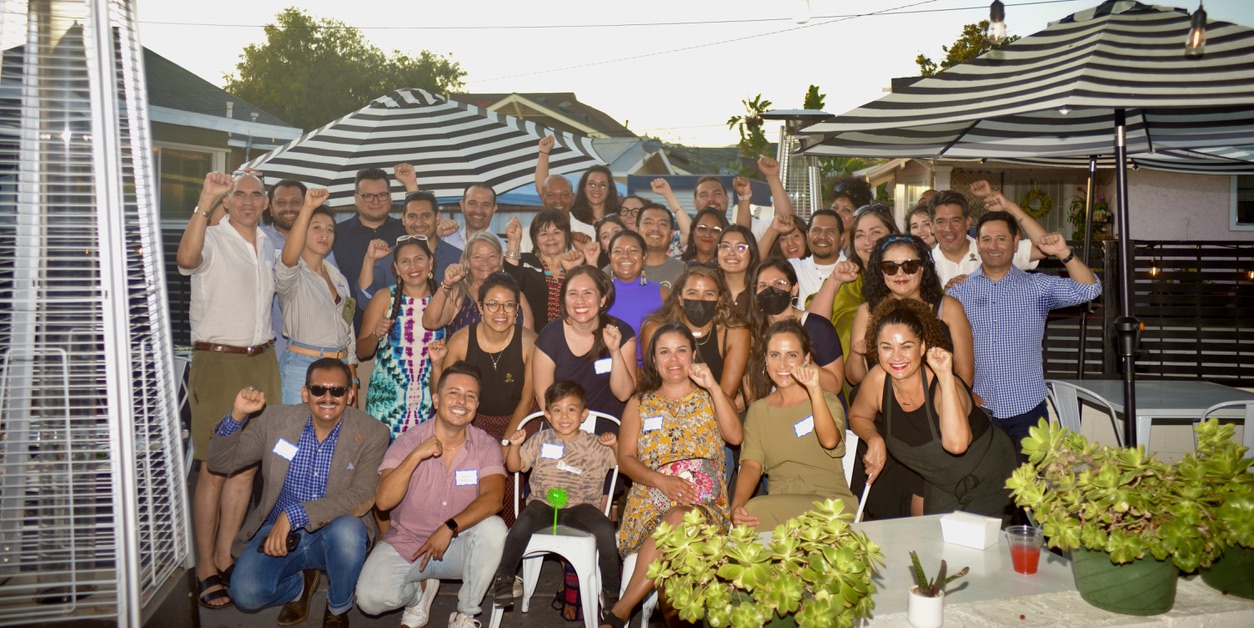On 2nd Anniversary of the Passage of Infrastructure Bill, GreenLatinos Releases Report Highlighting Investments in Top Latino States
WASHINGTON — Two years ago, the landmark Infrastructure Investment and Jobs Act (IIJA), aka the Bipartisan Infrastructure Law (BIL), became law and earmarked trillions of dollars toward helping millions of Latino/a/e, Black, Indigenous, Asian, and other low-income or marginalized communities of color build a clean, sustainable future.
Since the bill became law, billions of dollars in grants have been available to frontline and people of color-led grassroots community organizations managing conservation, restoration, and revitalization projects in their local neighborhoods. GreenLatinos has since released this report as a snapshot of vital IIJA-funded programs and projects in California, Colorado, Florida, New York, and Texas and its impact on Latino communities.
Despite the tremendous commitment to improving the lives of community members who live in neighborhoods ravaged by environmental injustices and the climate crisis, barriers and obstacles exist to ensure this law delivers resources to disadvantaged communities and becomes a long-term success.
Following the release of GreenLatino’s latest IIJA analysis on the second anniversary of the Infrastructure Investment and Jobs Act's passage into law, GreenLatinos released the following statements:
“Passage of the Infrastructure Investment and Jobs Act was a triumphant moment in our nation’s history. With huge investments in improving clean transportation, clean water, and clean energy infrastructure, the IIJA contains billions in federal grants for Latino/a/e, Black, Indigenous, Asian, and low-income community-led organizations.
This momentous investment comes at a crossroads moment for our country. Today, more than three years after the life-altering global COVID-19 outbreak and heightened public demand for a clean, healthy environment, we’re grateful and energized as new programs, projects, and communities begin to receive the necessary support to address the historical injustices suffered by marginalized communities for decades.
To better understand this new landmark law's promise, potential, and shortcomings, our staff compiled a snapshot analysis of investments from 23 programs across five federal agencies in states with high Latino populations. In this new report, our team analyzes the $3B investment in neighborhoods with increasingly growing Latino populations in the United States.
While we’re celebrating the significance of this moment, we also want to acknowledge that frontline environmental justice communities who’ve faced the brunt of this crisis are still left without sufficient technical assistance and support to successfully apply for and implement these federal Grants. Groups within our network have even returned federal funding due to the challenges of fulfilling federal grant requirements.
As we take a moment to commemorate this victory for our comunidad, we must address the ongoing hurdles our community faces when attempting to receive the federal resources and support needed by them after decades of neglect.” - Mark Magaña, GreenLatinos Founding President & CEO
While the experience was unfortunate to have to return the funds for community air monitoring, we are optimistic as we continue to work to facilitate this process so that these funds reach those they were intended for. We hope to continue educating our communities and building trust so we no longer feel this isn't meant for us. This investment in our communities means so much more than a new bridge or new road. These investments are seeds that will help our communities flourish.” - Patricia Garcia-Nelson, GreenLatinos Colorado Fossil Fuel Just Transition Advocate
“Progress made by acts like the Bipartisan Infrastructure Law - with the intent to quickly get funds to community leaders and experts in real time - is valuable. However, distributors of these funds must understand that authentic partnerships with grassroots organizations shouldn’t be burdensome and drawn-out. Further, requests for a more equitable and community-aligned process should be respected and not met with resistance. Cultivando advises implementers to consider all requirements of potential applicants before organizations invest staff time in writing grant applications. Implementers should also consider learning from philanthropic foundations to understand better, more effective funding and reporting procedures that align with organizations." - Guadalupe Solis, Director of Environmental Justice Programs at Cultivando
###
GreenLatinos (NOTE: GreenLatinos is ONE WORD) is an active comunidad of Latino/a/e leaders, emboldened by the power and wisdom of our culture, united to demand equity and dismantle racism, resourced to win our environmental, conservation, and climate justice battles, and driven to secure our political, economic, cultural, and environmental liberation.




